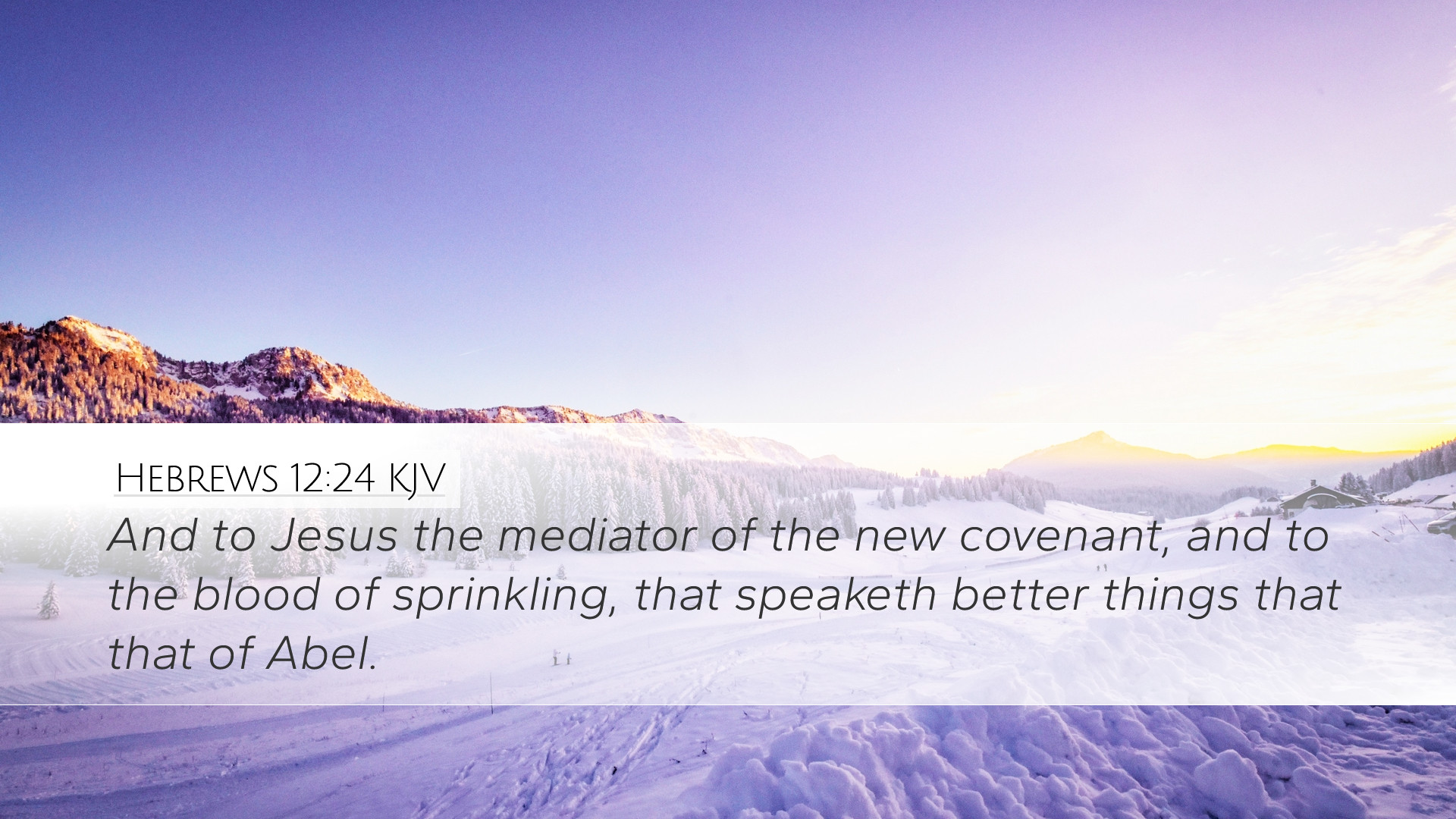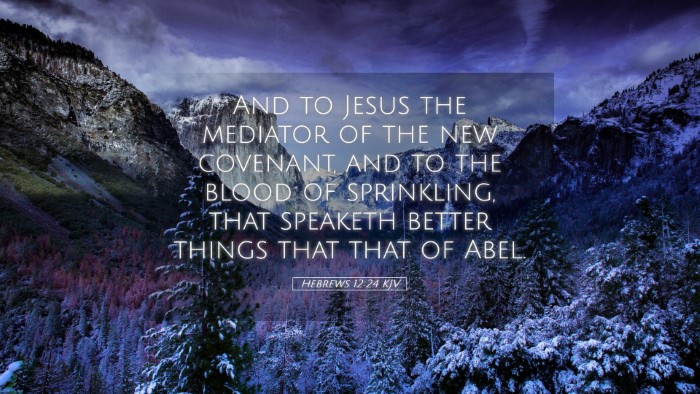Bible Commentary on Hebrews 12:24
Hebrews 12:24 states: "And to Jesus the mediator of the new covenant, and to the blood of sprinkling that speaketh better things than that of Abel." This verse encapsulates the essence of the new covenant established through Jesus Christ and presents a profound theological reflection on grace, redemption, and the efficacy of Christ’s sacrificial work.
Contextual Analysis
The Book of Hebrews is characterized by its emphasis on the superiority of Christ over the elements of the Old Covenant. This epistle was addressed primarily to Jewish Christians who were facing persecution and temptation to revert to their former religious practices. The author meticulously contrasts the old system with the new, highlighting the completed work of Christ as the ultimate fulfillment of the law and the prophets.
The Nature of Christ’s Mediation
In this verse, Jesus is identified as the "mediator of the new covenant." This mediation implies a relational dynamic where Jesus stands as the intercessor between God and humanity.
-
Matthew Henry emphasizes the significance of Jesus as a mediator, noting that through Him, believers have direct access to God, contrasting the limitations of the Mosaic law where intermediaries (like priests) were necessary to approach God.
-
Albert Barnes highlights that Jesus’ mediation is unique because it is based on His personal sacrifice and resurrection, which grants believers not just a covenant, but the assurance of eternal life.
-
Adam Clarke points out that the term “new covenant” signifies a fresh and dynamic relationship with God, whereby believers are empowered by the Holy Spirit to live in obedience and holiness.
The Significance of Christ’s Blood
The latter part of the verse refers to "the blood of sprinkling that speaks better things than that of Abel." This reference to blood is central to the understanding of atonement in the Christian faith.
-
Matthew Henry notes that Abel's blood, which cried out for vengeance after his murder, represents a plea for justice. In contrast, Christ’s blood speaks of mercy, forgiveness, and reconciliation.
-
Albert Barnes comments on the contrast between Abel’s blood, which brings condemnation, and Christ’s blood, which brings redemption. He sees this as an essential component of the believer's hope, underscoring that Christ's sacrifice not only pays for sin but also grants believers peace with God.
-
Adam Clarke elaborates on the nature of this "speaking," suggesting that the blood of Christ continually intercedes for believers, calling for grace rather than judgment, securing their position in God’s family.
Theological Implications
This verse serves as a transitional point in the epistle, moving from the description of the faith of the followers in the past to the better covenant established in Christ. The implications here are profound for pastoral care and theological reflection.
-
Covenantal Theology: The shift from the old to the new covenant represents not merely a change of terms but a transformation in how believers engage with God. This calls for an understanding of God’s unchanging nature in contrast to His progressive revelation through covenants.
-
Christology: The focus on Jesus as Mediator positions Him at the center of the soteriological narrative. This has significant implications for worship and doctrine, reminding believers that their relationship with God is solely through Christ.
-
Ethical Living: The acknowledgment of Christ's sacrifice inspires a faithful response in the lives of believers to live in a manner that reflects gratitude and holiness, drawing on the transformative power of the Spirit.
Pastoral Application
For pastors and theologians, this verse offers rich ground for preaching and teaching. Consider the following applications:
-
Encouragement to the Weary: Believers facing trials similar to those of the original audience can be reassured of their secure position in Christ, served by a Mediator whose blood speaks of hope and not condemnation.
-
Evangelistic Appeal: The contrast between the blood of Abel and the blood of Christ provides a powerful narrative in evangelism, illustrating the journey from sin and shame to redemption and acceptance.
-
Discipleship Focus: Emphasizing the necessity of spiritual growth and reliance on the new covenant's empowerment can guide churches toward active discipleship, promoting a lifestyle reflective of the new identity in Christ.
Conclusion
Hebrews 12:24 stands as a pivotal verse that encapsulates the heart of the Christian faith. The richness of its meaning, illuminated by the insights of esteemed commentators, provides a profound foundation for theological exploration and practical ministry. By understanding the nature of Christ as a mediator and the profound implications of His blood, believers are called to live with confidence and hope, embracing the new covenant's promise in their daily lives.


